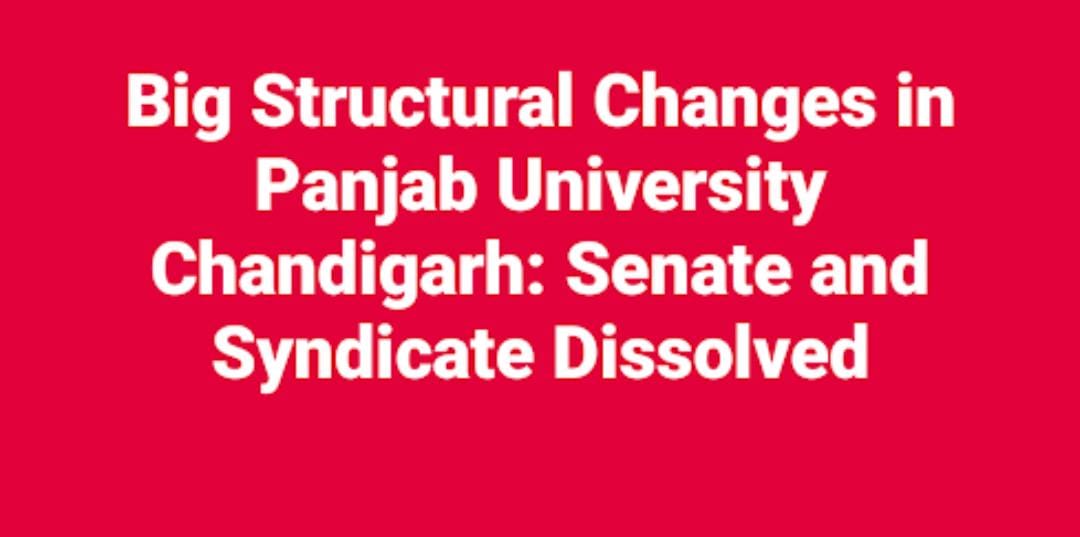Journalist Sandeep Dhand Ludhiana
The Central Government has made major structural changes in Panjab University Chandigarh after many years. On October 28, 2025, the government issued a notification amending the Panjab University Act of 1947. This amendment has brought a major transformation to the university’s administrative setup.
According to the new changes, there will no longer be elections for the Senate in Panjab University, and graduate voters will no longer have representation. Earlier, the university had a 90-member Senate and a 15-member Syndicate that decided policies and budgets. These bodies were key in managing the academic and administrative affairs of the university.

The new amendment removes the democratic election system that allowed graduates and university members to elect representatives. Now, the Senate will have only 31 members instead of 90. Among them, there will be seven ex-officio members, including high-ranking officials from Punjab and Chandigarh. These include the Chief Minister of Punjab, the Chief Justice of the Punjab and Haryana High Court, the Education Ministers and Secretaries of both Punjab and Chandigarh, the Advisor to the Governor, and the Member of Parliament from Chandigarh.
Apart from these, 24 other fellows will form part of the Senate. These will include two university professors, two associate or assistant professors, four college principals, and six college teachers from affiliated or constituent colleges. Two members of the Punjab Legislative Assembly will also be nominated by the Speaker. The remaining eight members will be nominated by the University Chancellor, who will choose individuals with experience in education, research, innovation, or public life.
The notification also removes Section 14 of the previous Act, which required annual elections for registered graduates and maintained their voter rights through a registration process. Under the new system, there will be no voting rights for graduates or the public, and most members will now be appointed rather than elected.
The new Senate structure gives more authority to the Vice Chancellor and the Chancellor in selecting members. The tenure of each member will be four years. Critics believe this change reduces the representation of Punjab within the university and centralizes decision-making power. Earlier, various categories of fellows, including representatives from different educational sectors, had a role in decision-making.
The Senate of Panjab University has traditionally been responsible for managing the university’s affairs, property, and academic activities. It played a key role in forming policies, approving budgets, and maintaining academic quality. The Syndicate, on the other hand, functioned as the executive body responsible for day-to-day operations and held meetings every month.
The new amendment replaces the earlier democratic system with a nomination-based structure. Supporters of the old system believe that this change ends the long-standing democratic process within the university. They argue that such reforms could weaken Punjab’s representation in one of its most historic and culturally significant institutions.
The decision has sparked strong reactions, as many believe it threatens the university’s autonomy and the identity it shares with Punjab’s educational heritage. The new structure marks the end of the university’s traditional Senate elections, shifting control and authority more towards central nomination and administration.




